You are here
New Releases
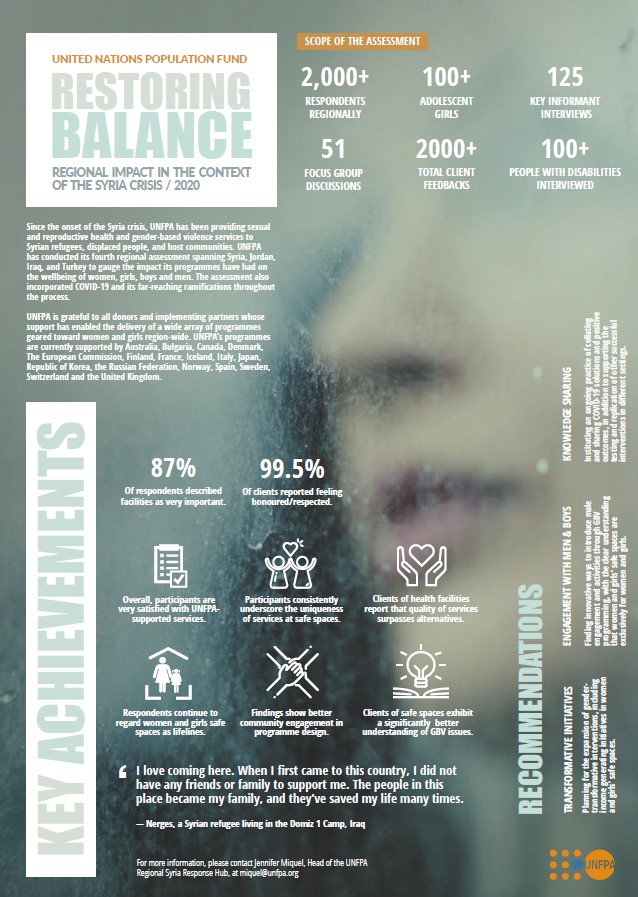
UNFPA Impact Assessment Fact Sheet / Regional Syria Crisis Response
The overall aim of the 2020 impact assessment is to examine if the services provided at UNFPA-supported delivery points (health facilities, women and girls’ safe spaces, outreach points, and youth centres) are achieving the intended objectives. This includes assessment and review to measure, primarily: (a) whether UNFPA-supported services have contributed to improved physical and psychosocial wellbeing of those in need of gender-based violence (GBV) prevention and response services and those in need of sexual and reproductive health (SHR) services; and (b) whether UNFPA-supported services have increased availability, accessibility, and acceptability of quality GBV and SRH services.
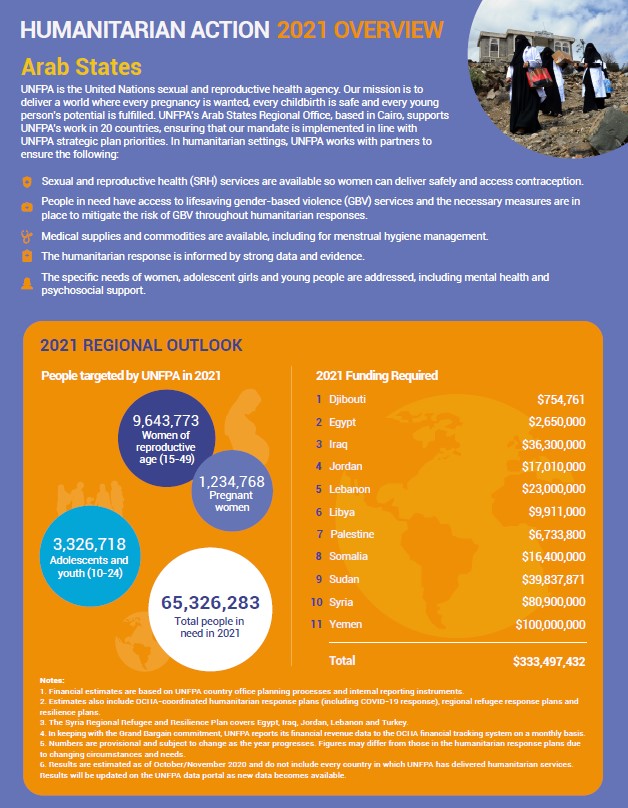
Arab States - Humanitarian Action 2021 Overview
Women do not stop giving birth, and risks of gender-based violence increase during conflicts and disasters. The COVID-19 pandemic has underscored existing inequalities and the disproportionate impact of crises on women and girls. In response, UNFPA’s life-saving work is more important than ever.
The UNFPA Humanitarian Action 2021 Overview highlights the needs and rights of women and adolescent girls in emergencies, which are often overlooked. UNFPA is appealing for $818 million, to reach 54 million women, girls and young people, including 35 million women of reproductive age, 29 million adolescents and young people, and over 4 million pregnant women in 68 countries.
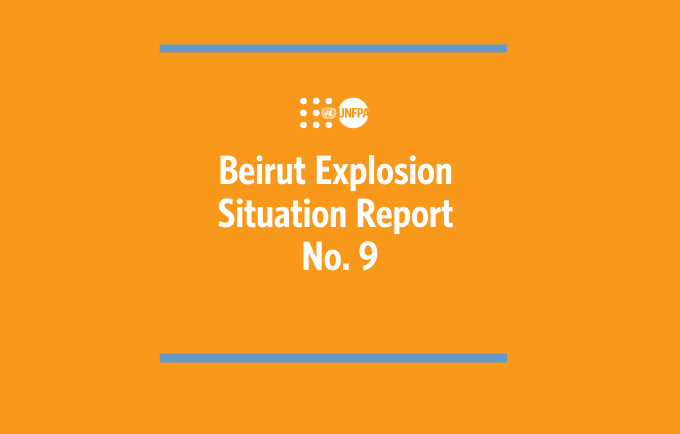
Beirut Explosion Situation Report No.9
The massive explosion that shook Beirut’s Port, almost 4 months ago, caused widespread damage and it is becoming increasingly clear that Beirut and its population require time to heal its wounds. With over 80,000 properties damaged in the areas affected by the explosion and the arrival of winter and rain, it has become harder on the people of Beirut, many of whom are still awaiting for their houses to be rehabilitated.
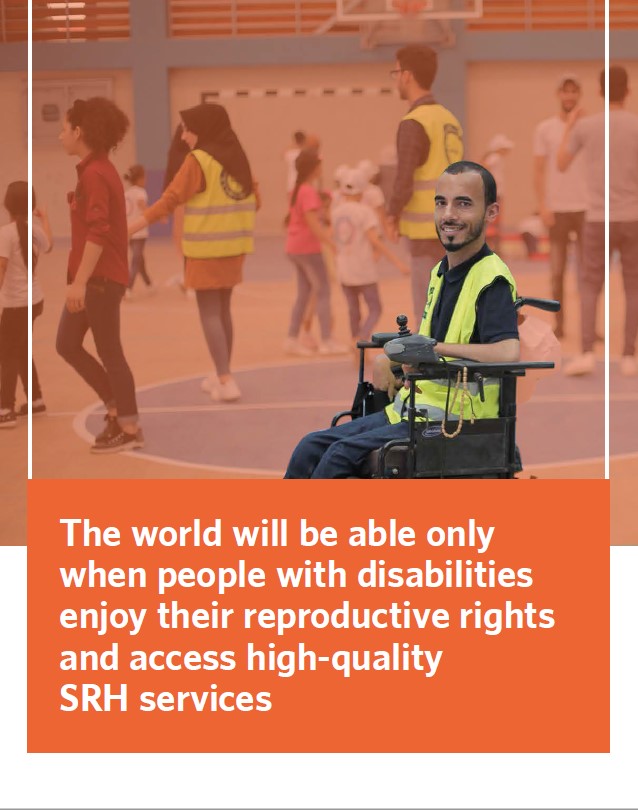
The world will be able only when people with disabilities enjoy their reproductive rights and access high-quality SRH services.
The world will be able only when people with disabilities enjoy their reproductive rights and access high-quality SRH services.
Around the world, more than 1.5 billion women, men, boys and girls are living with some form of disability
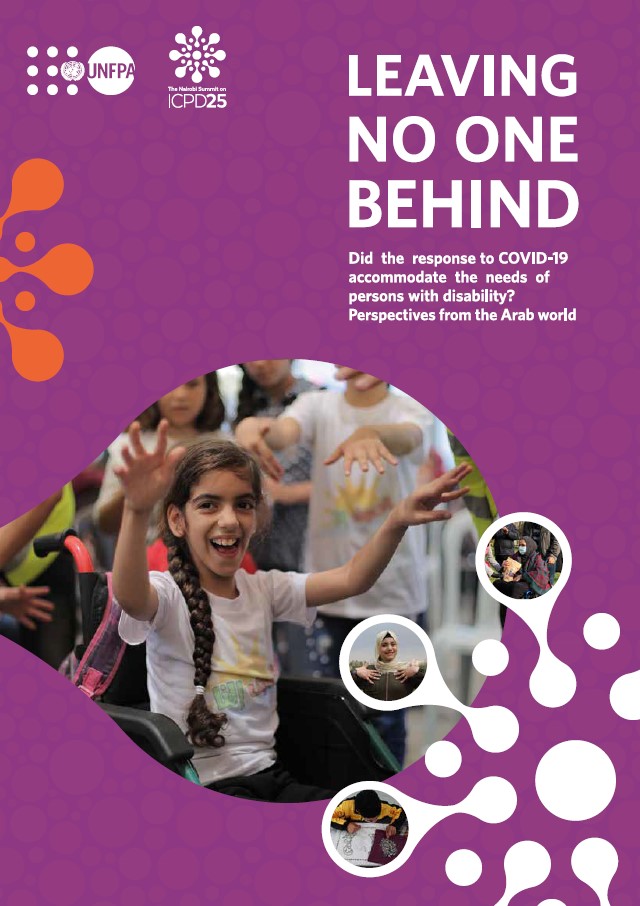
LEAVING NO ONE BEHIND: Did the response to COVID-19 accommodate the needs of persons with disability? Perspective from the Arab World
In response to COVID-19, social development dialogues re-energized advocacy efforts to advance disability inclusion in development on the global, regional, and national levels, as well as humanitarian settings.
The global pandemic is exposing pre-existing inequalities. During normal times, persons with disabilities face more discrimination, violence, and barriers to access information, education, and services while they should be able to equally access all services.
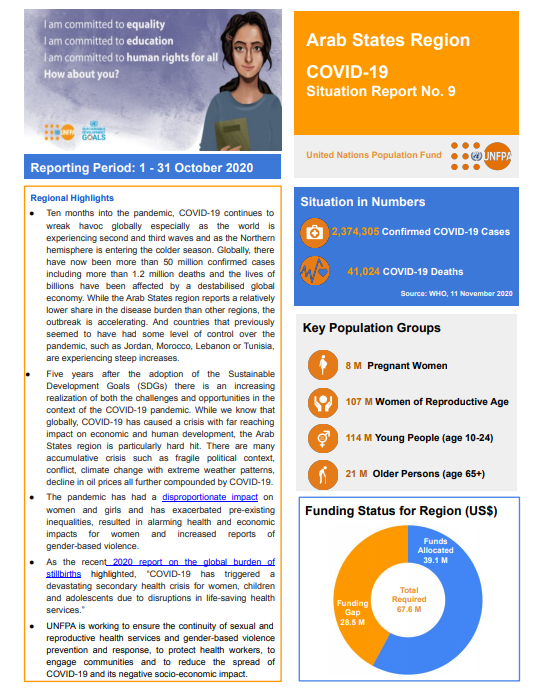
COVID-19 Situation Report No. 9
Ten months into the pandemic, COVID-19 continues to wreak havoc globally especially as the world is experiencing second and third waves and as the Northern hemisphere is entering the colder season. Globally, there have now been more than 50 million confirmed cases including more than 1.2 million deaths and the lives of billions have been affected by a destabilised global economy. While the Arab States region reports a relatively lower share in the disease burden than other regions, the outbreak is accelerating. And countries that previously seemed to have had some level of control over the pandemic, such as Jordan, Morocco, Lebanon or Tunisia, are experiencing steep increases.
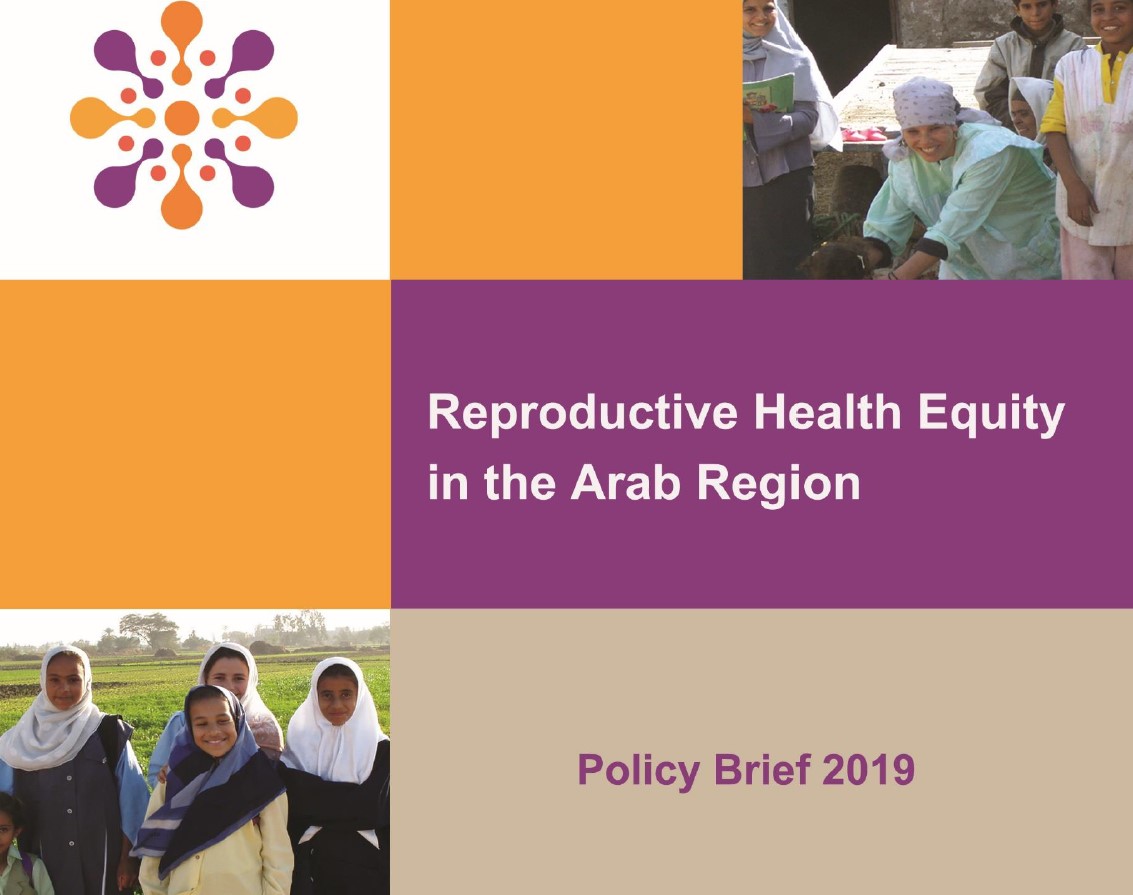
Reproductive Health Equity in the Arab Region: Policy Brief 2019
The time is right for the Arab region to embrace a policy movement towards eliminating the systematic unfair inequalities in sexual and reproductive health (SRH) as a core development goal and a whole of government performance indicator.
This movement is anchored on the three main pillars of the current development thinking. The first is the ambitious ICPD beyond 2014 framework1 that places people’s well-being at the center and acknowledges their aspirations for dignity and human rights, adopts a rights based approach, and embraces equity and fairness.
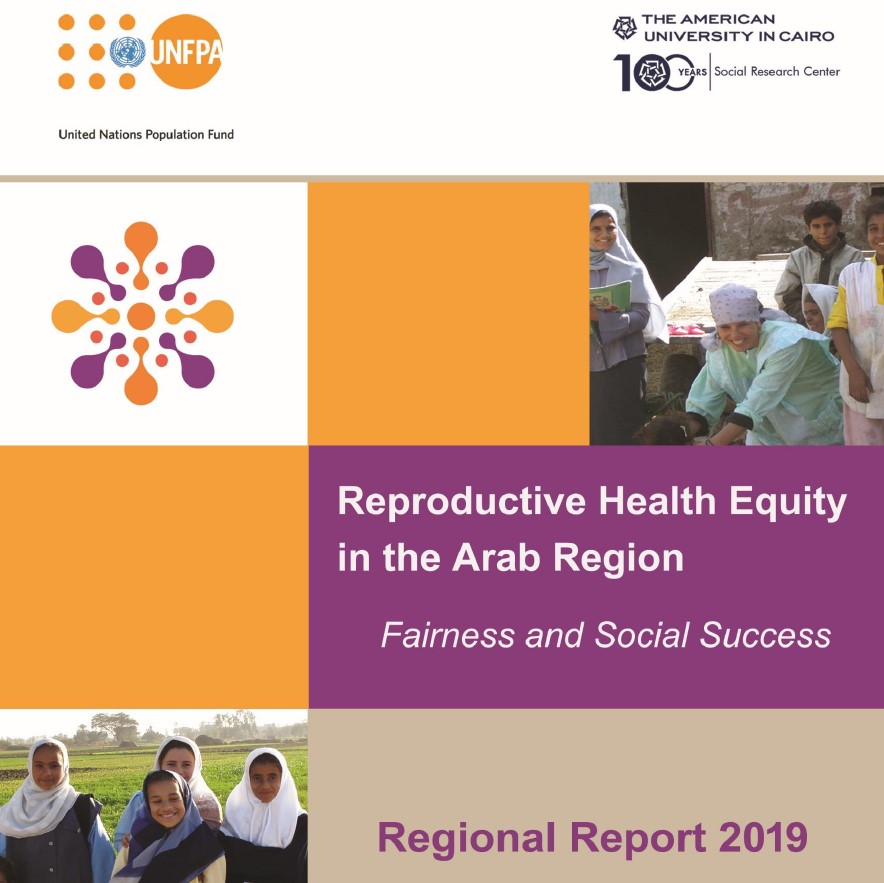
Reproductive Health Equity in the Arab Region
This report responds to the new International Conference on Population and Development (ICPD) beyond 2014 framework that places people’s well-being at the center and acknowledges their aspirations for dignity and human rights, adopts a rights based approach, and embraces equity and fairness. It is also anchored on the widely adopted Sustainable Development Goals (SDGs) and its pledge to “Leaving no one behind”. It addresses current regional concerns with sexual and reproductive health (SRH) and mainstreams an equity lens in SRH policies and actions.
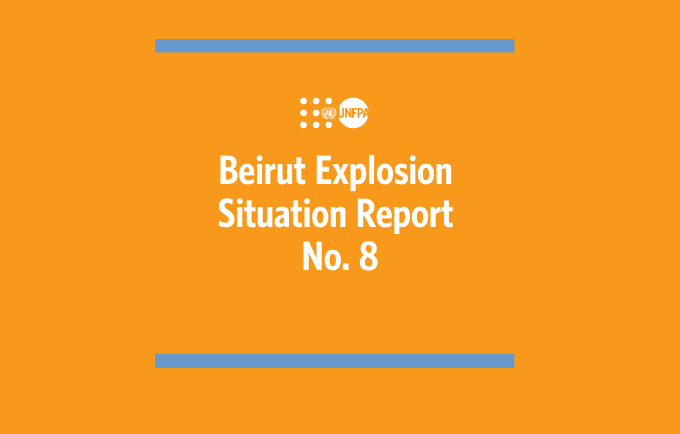
Beirut Explosion Situation Report No.8
Almost three months after the blast that rocked the Lebanese capital city of Beirut, urgent needs for protection, food, health, shelter and WASH remain critical. The loss of livelihoods, compounded by the current COVID-19 outbreak, as well as the country’s financial and economic crises, have raised the demand for substantial and long-term humanitarian assistance. In this context, the UN and partners are actively engaged in the development of the World Bank Group, European Union and UN Reform, Recovery and Reconstruction Framework (3RF) – a critical step in the transition from immediate humanitarian programmes to more sustainable interventions and support for recovery and reconstruction.
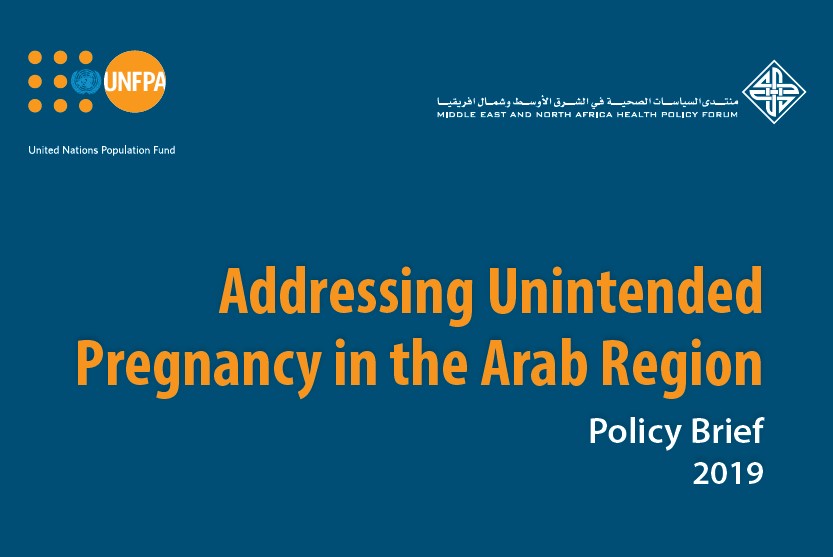
Addressing Unintended Pregnancy in the Arab Region Policy Brief 2019
Unintended pregnancy and unsafe abortion are serious public health issues in the Arab region that often go ignored, jeopardizing the health of women and families and placing a burden on society as a whole. Although family planning services have expanded in the region, and a growing number of women are using modern contraceptives. However, rates of unintended pregnancy remain high. On average, two in five pregnancies are unplanned, and half of these unintended pregnancies result in abortion, which is illegal in Arab countries (except for Tunisia) and largely unsafe, putting women’s lives and health at risk.